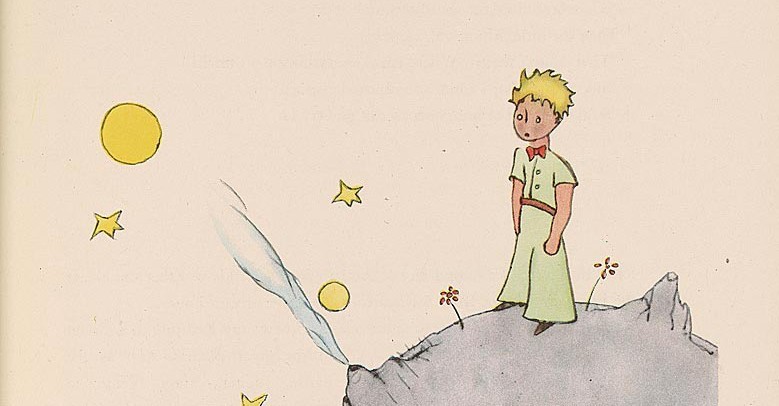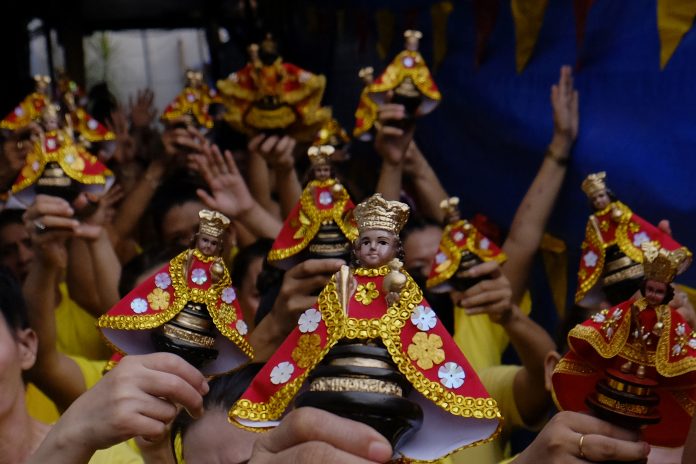On April 14, 1521, five hundred years ago now, the wife of Rajah Humabon of Cebu was baptized by Father Pedro de Valderrama and was given the Christian name Juana.
It was also on this day that she received the image of the Santo Niño as gift from Ferdinand Magellan, who I suppose, also stood as her “ninong (godfather).” The Santo Niño became the first Christian icon ever to be introduced to our native ancestors.
I have told you many times before that icons are theological statements. So, what statement is the image of the Santo Niño supposed to represent? That “Christian Discipleship” is the way of spiritual childhood.
For the Christian faith, as we grow old physically, we’re supposed to become younger spiritually. We’re supposed to grow spiritually into infants who are being prepared to be “born from above,” as Jesus said to Nicodemus in the Gospel, John 3:3 “…no one can see the kingdom of God without being born from above.”
Nicodemus of course misunderstands this. In the next verse, he reacts and says, “How can a person once grown old be born again? Surely he cannot reenter his mother’s womb and be born again, can he?” For the likes of Nicodemus, spiritual childhood is something difficult to understand.
You see, the Santo Niño is more than an icon; it is a profound way of life and spirituality that sums up for us what it means to be a disciple of Christ. This devotion was developed by the Carmelites and became a full-blown spirituality, especially by St. Therese of Lisieux, whom Catholics know better as St. Therese of the Child Jesus.
Therese called the Santo Niño spirituality the LITTLE WAY. Taking her inspiration from Mark 10:15, which says, “Whoever does not accept the kingdom of God like a child will not enter it.” It means, the kingdom of God is not accessible to people who do not attain the spiritual childhood Jesus is talking about as a way of life.
If we follow the Way of Jesus, we follow what Therese calls the Little Way, or the Path of Littleness, meaning, the way of Humility and Servanthood of the Son of God who became human so that we humans can become children of God. Remember how he said this to James and John who had also been bitten by the virus of the desire for power? (They remind me of the spell of the ring in The Lord of the Rings.) How they wanted to be seated on his right and on his left, and how Jesus said in Mark 10:43 “Whoever wishes to be great among you will be your servant; whoever wishes to be first among you will be the slave of all.” For Jesus, the way to true greatness is not power but humility; not lording it over, but servanthood.

I wonder if Antoine de Saint Exupery did not have the Infant Jesus icon in mind when he depicted his Little Prince character in that beloved little book. The Little Prince has a lot of amusing comments about the ridiculous things that grownups are doing. It depicts grownups as a group of people who have lost their sense of imagination and the ability to see what’s essential. He calls them people who are concerned only about “matters of consequence.” They wouldn’t believe an astronomer because he was in a Turkish costume. They are obsessed about counting things— even the stars—as their properties; they are always in a rush in order to save time. They have no time to smell a flower, admire a sunset or befriend a fox. They have lost the ability to understand why a little rose would mean the whole world to someone like him.
I think the most important lesson on discipleship that Jesus taught his disciples was this—how to grow into a child of the kingdom and counteract the lion in us that wants to behave like ridiculous grownups who play god, who compete with each other, who are aggressive or even violent, always aspiring for greatness in the wrong way.
Remember how King Saul was quickly corrupted by power and lost the gift of his anointing? Remember how the prophet Samuel sought God’s anointed among the adults in the house of Jesse only to find him in the young shepherd boy David? In this young inexperienced shepherd boy God would find the right ruler for Israel.
This quest for the Messiah would repeat itself in Matthew’s infancy narrative with the visit of the Magi and their adoration of the child who would bring about God’s kingdom.
Nowadays, people want to remain young, even as they grow old physically. They think they can look young by getting a face lift, or by wearing trendy clothes. You know what really makes us age spiritually? When we learn to hold grudges in our hearts, when refuse to forgive, when we become resentful, envious, stressed out by worries and fears and the constant need to compete in order to be better than others.
The signs that we’re getting old not just physically but also spiritually are, when we are annoyed by children and are distracted by their presence, when we exclude them and refuse to count them in. When grownups declare their activities as “for adults only,” it means they are going to engage in pornography, violence, cruelty, indecent talk and cuss words.
We exclude children because we have reason to be ashamed to be seen or heard by children that way. We do not want to be seen by children when we do shameful things we do not want them to imitate. And yet, on the other hand, when do we become gentle, affectionate and well-mannered? When we are in the company of children!
The Santo Nino is the “little way” Therese had learned from Jesus. Only people who can humble themselves before God will receive God’s mercy and forgiveness. Only people who know the way of humility will be able to understand the lowly, the last, the least and the lost in society. Only those who can accept their littleness before God can understand and express compassion for the “little ones.”
The proud and the arrogant, because they think too highly of themselves, are the ones who tend to be cruel and oppressive, they tend to step down on the lowly like dirt. Those who behave this way must be reminded of the warning of Mama Mary in the Magnificat, “He casts down the mighty from their thrones and lifts up the lowly.”
The Lord does not do this in order to make the slaves of today the tyrants of tomorrow. He casts down the mighty and lifts up the lowly not to reverse their situation but to put them all on equal footing, not as masters and slaves, but as brothers and sisters as fellow children of God.
Therese also tells us that those who learn the Little Way will never feel terror or negative fear before the Lord. Like little children, they will leap with joy and excitement and not be afraid to fall because they know that the loving Father will catch them in his arms and enfold them in his loving embrace.
Homily of Bishop Pablo Virgilio David for Wednesday of the Second Week of Easter, April 14, 2021, Jn 3:16-21









